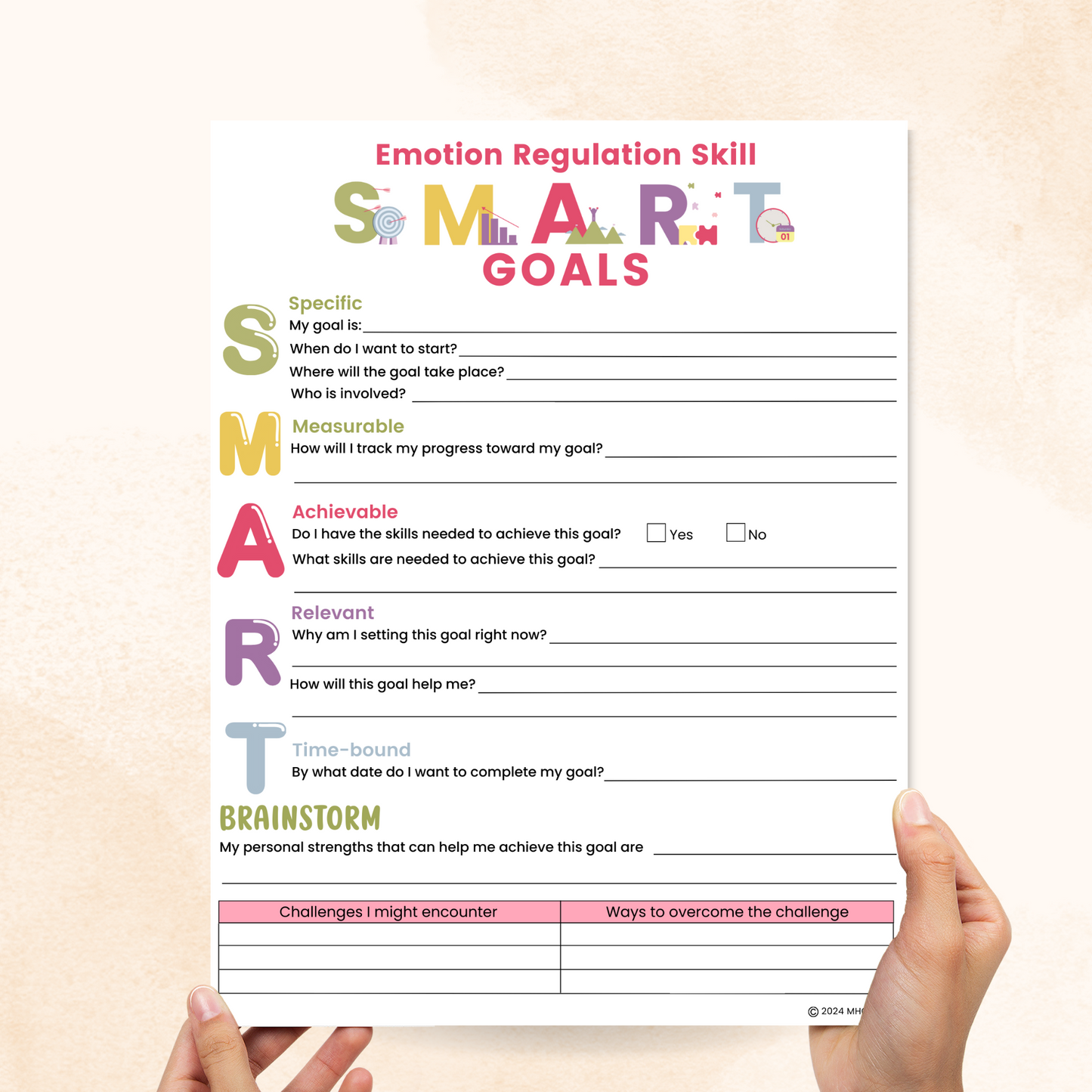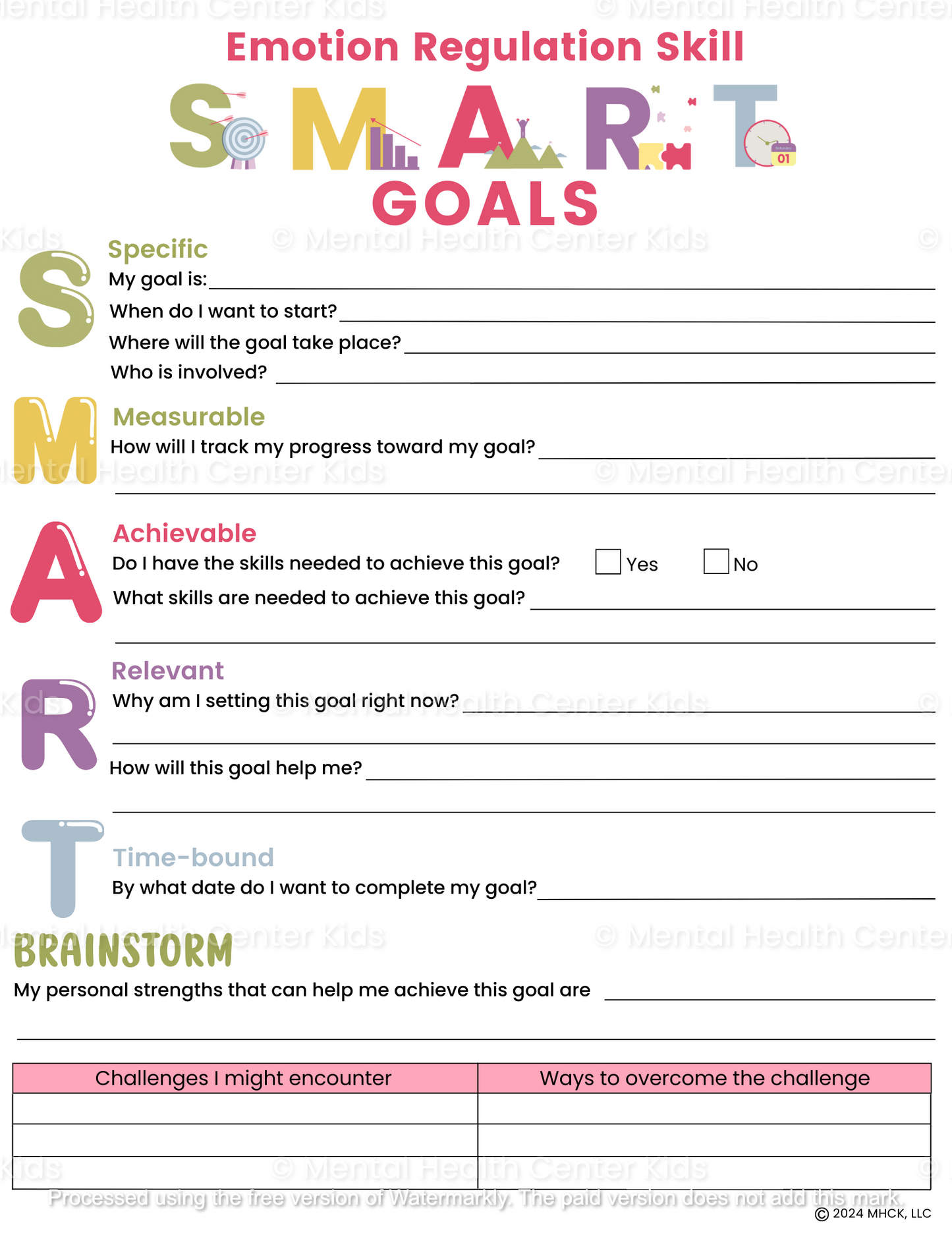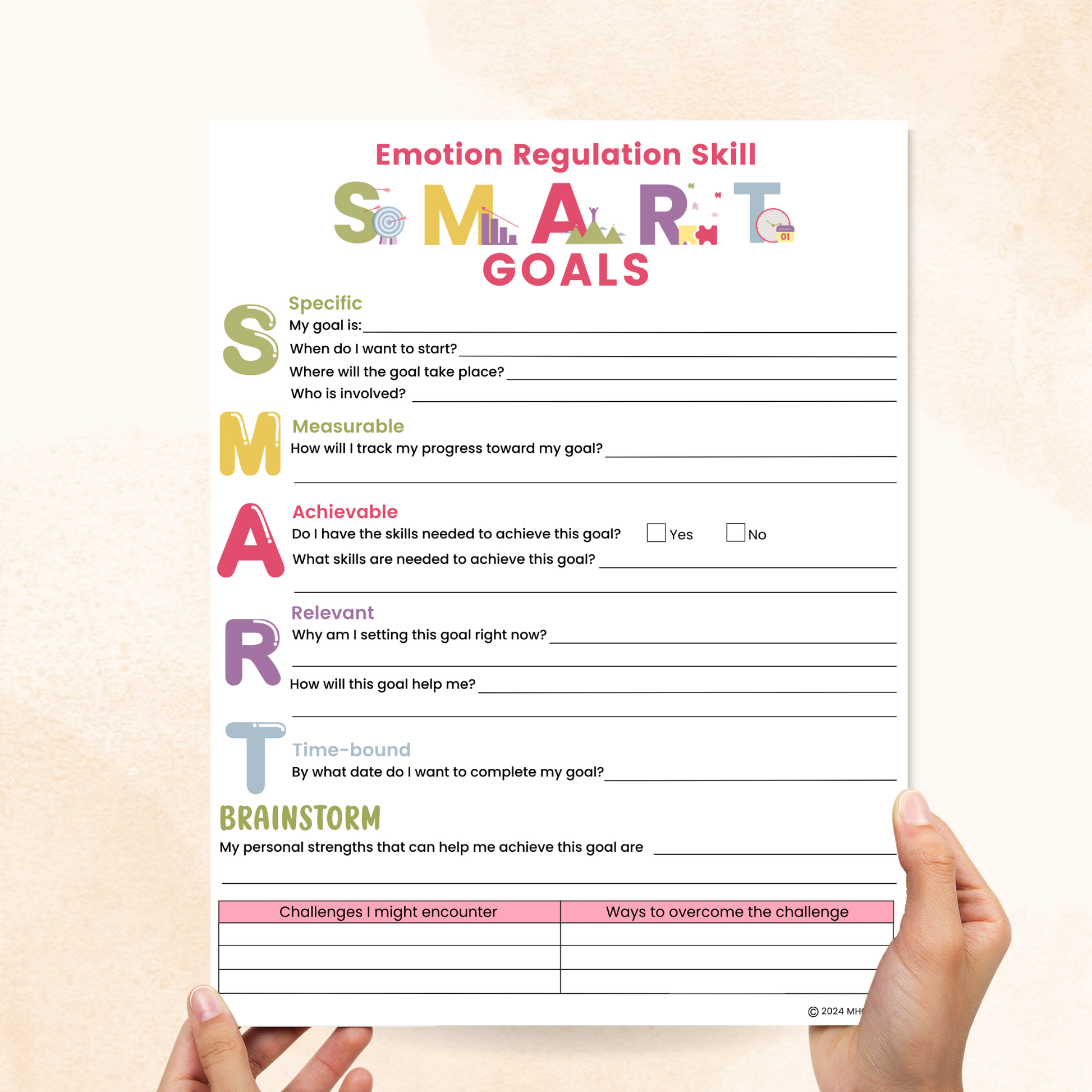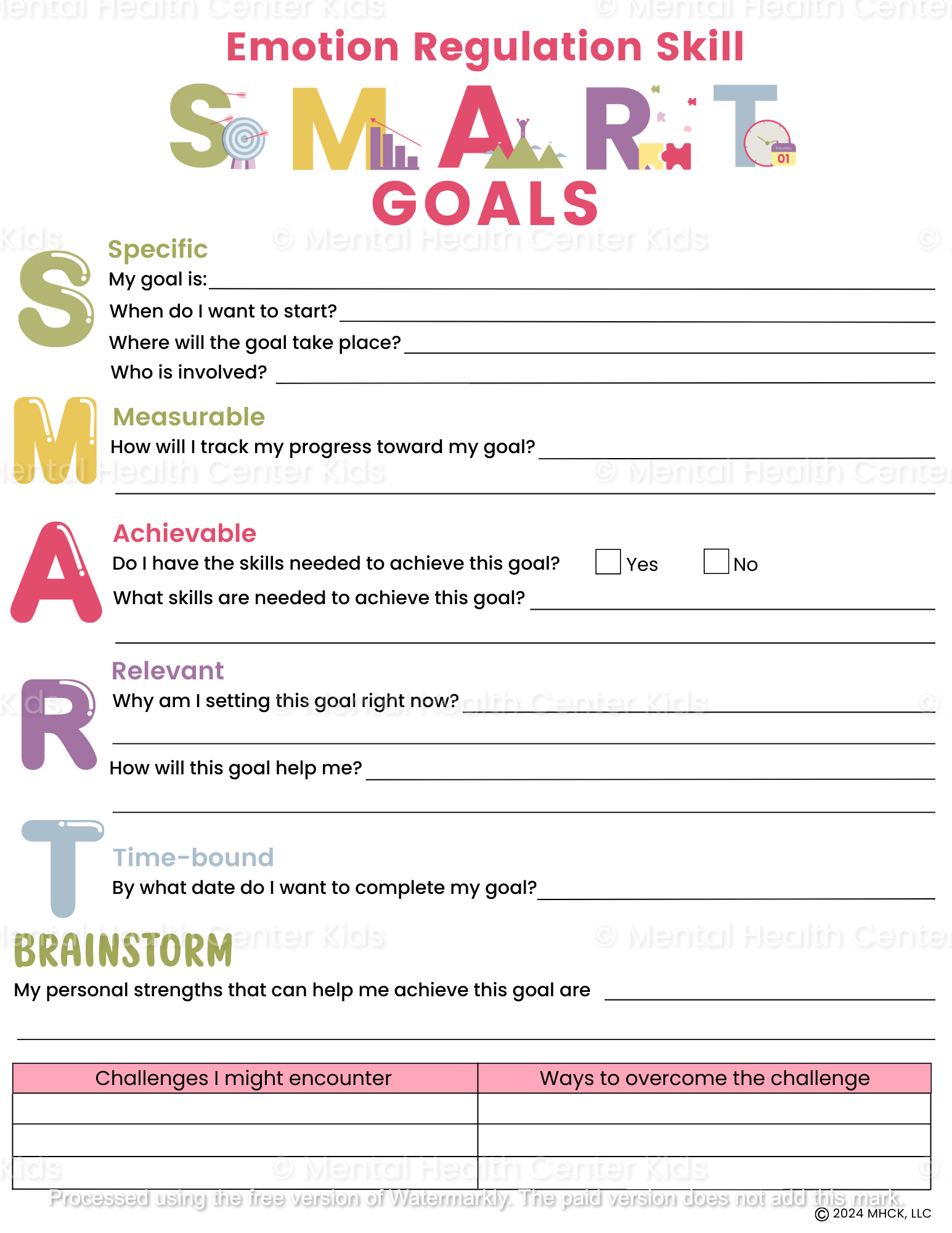DBT SMART Goals Worksheet


In Dialectical Behavior Therapy (DBT), SMART goal-setting can be used for short-term or long-term goals and is effective in adding value to the work that you are already doing. SMART stands for Specific, Measurable, Achievable, Relevant, and Time-bound, which provides a clear roadmap for clients who are taking proactive steps toward change.
The DBT SMART Goals Worksheet serves as a helpful tool where clients can start practicing setting SMART goals. Each component of SMART goals has questions that encourage reflection. Moreover, the worksheet asks them about their personal strengths, the challenges they may encounter, and ways they can overcome those challenges.
Through this worksheet, kids and teens can gain clarity around their DBT goals, which allows them to stay motivated and committed. After the activity, they can discuss their answers with their caring adults and mental health professionals to receive additional guidance and insights.
Our DBT SMART Goals handout can be added-on for further engagement in the SMART Goals concept. For individuals who are not engaging in DBT, we also offer a general SMART Goals handout in our Growth Mindset product category.
*This item is an instant digital download. A link to download your files will be emailed to you once payment is confirmed.
Want more resources like this? Check out our full catalog of DBT worksheets and handouts.
References:
- Doran, G. T. (1981). There’s a SMART way to write management’s goals and objectives. Management review, 70(11), 35-36.
- Locke E.A. (1968). Toward a Theory of Task Motivation and Incentives. Organizational Behavior & Human Performance, Vol. 3, pp. 157 – 189
- Locke E., Latham G. (2006). New Directions in Goal-Setting Theory. Current Directions in Psychology Science Vol. 15 (5), pp. 265 – 268. [online] [22.11.2016]. Available at https://home.ubalt.edu/tmitch
- Van Herten, L. M., & Gunning-Schepers, L. J. (2000). Targets as a tool in health policy: Part I: Lessons learned. Health Policy, 53(1), 1-11.
- Instant digital download
- File: Fillable PDF
- Size: 8.5" x 11"
Frequently Asked Questions
The ideal worksheet for creating SMART Goals
Thanks Eleanor! We tried to make SMART goal-setting as clear and accessible as possible. You're feedback is very valuable to us.



